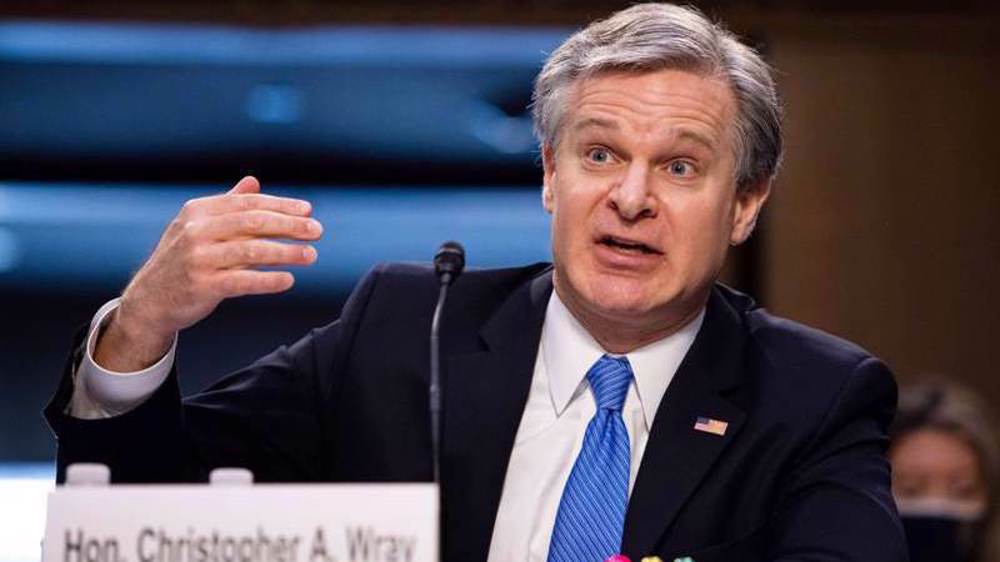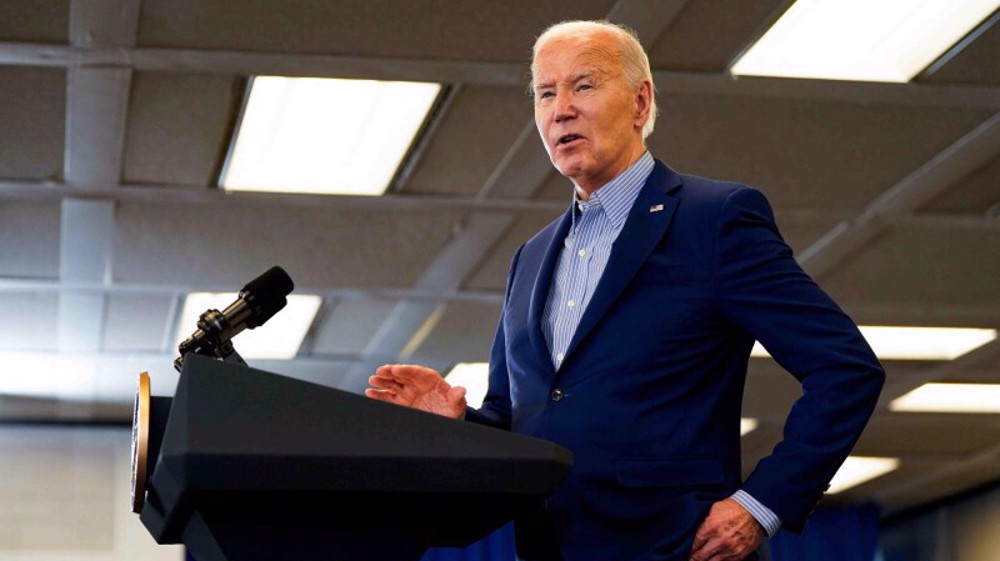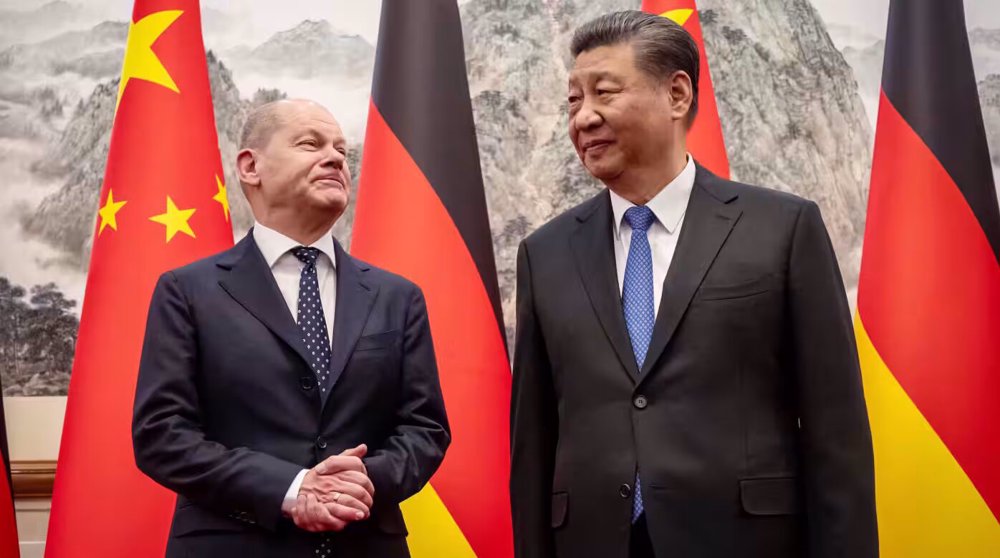China raps North Korea missile test, calls for restraint
Beijing has censured Pyongyang’s reported launch of an intercontinental ballistic missile (ICBM), also calling on all sides to observe restraint in response to the test and avoid acts that could escalate tensions on the Korean Peninsula.
“China opposes North Korea’s violations of UN Security Council resolutions and (its actions) contrary to the general aspirations of the international community,” Chinese Foreign Ministry spokesman Geng Shuang said in a statement on Saturday.
Beijing “urged North Korea to abide by UN resolutions and stop taking actions that could worsen the situation,” he added. “At the same time, (China) hopes that all parties concerned will exercise caution and avoid aggravating tensions and act together to preserve peace and stability on the Peninsula.”
The remarks were made a day after Pyongyang test-launched an ICBM, which as the Pentagon claimed flew for approximately 1,000 kilometers (620 miles) and crashed into Japan’s maritime exclusive economic zone.
North Korean leader Kim Jong-un said the whole of the US mainland was within the striking range of the newly-tested guided missile.
Russia, however, cast doubt on the declared nature of the missile, saying its characteristics appeared to be “those of a medium-range ballistic missile.”

Decrying the latest missile test as a “reckless and dangerous” action, US President Donald Trump vowed to take “all necessary steps to ensure the security of the American homeland and protect allies in the region.”
US Secretary of State Rex Tillerson pointed the finger of blame at China and Russia, viewed as North Korea’s two major allies, saying that Beijing and Moscow bore “unique and special responsibility” for the growing threat posed by Pyongyang.
“As the principal economic enablers of North Korea’s nuclear weapon and ballistic missile development program, China and Russia bear unique and special responsibility for this growing threat to regional and global stability,” Tillerson said in a statement.
The launch was a “blatant violation of multiple United Nations Security Council resolutions that reflect the will of the international community,” he noted.
EU, France lambaste North Korean launch
Meanwhile, the European Union (EU) lashed out at North Korea’s ICBM test, saying that the country posed “a serious threat to international peace and security.”

The launch “is in outright violation of (North Korea’s) international obligations as set out in several UN Security Council resolutions,” the EU’s foreign service said, urging Pyongyang “to refrain from any further provocative action that could increase regional and global tensions.”
France also called for “ambitious measures" by the EU and urged fellow members of the United Nations Security Council to swiftly adopt “strong and additional sanctions” against North Korea for its latest ballistic missile launch.
“Only maximum diplomatic pressure is likely to bring North Korea back to the negotiating table” and stop it from obtaining “an operational and guided nuclear arsenal,” French Foreign Ministry spokeswoman Agnes Romatet-Espagne said in a statement.
“This launch, like the one that North Korea carried out on July 4, shows the determination of the North Korean regime to place the entire international community within range of its missiles,” the statement said.
“The pursuit of the North Korean nuclear and ballistic program constitutes a growing and unacceptable threat for all.”
South Korea to deploy additional THAAD units
On Saturday, South Korea said Seoul would adopt “independent measures” to contain North Korea’s nuclear threat following the recent ballistic missile test.
“Along with joint efforts to deter proliferation (of North Korea’s nuclear threat) we will prepare independent measure to curb it as soon as possible,” South Korean Defense Minister Song Young-moo said at a press conference in the capital.

South Korea further said it would proceed with the deployment of four additional units of an advanced American missile system after the North Korean test launch.
Two units of the Terminal High-Altitude Area Defense (THAAD) missile system have already been deployed in South Korea, but the additional deployment had been delayed amid widespread protests and the call for an environmental assessment.
China objected to the THAAD deployment, saying it would further destabilize the region.
The Chinese Foreign Ministry expressed dissatisfaction with the issue and stressed that the deployment will not resolve South Korea’s security concerns and will only make things more complex.
A battery of the THAAD is said to be capable of firing up to 48 interceptor missiles and consists of six truck-mounted launchers, fire control and communication equipment as well as a powerful X-band radar.
The North, currently under a raft of UN crippling sanctions over its nuclear and missile programs, says it will continue those programs until Washington ends its hostility toward the country, slamming the controversial deployment THAAD in South Korea.
Pyongyang says the advanced missile system threatens its sovereignty, while Seoul claims that THAAD only serves as deterrence against North's possible attacks.
Israeli occupation of Palestine ‘main cause of instability’ in region: Turkish FM
VIDEO | Columbia students camp on university grounds in support of Palestinians
VIDEO | Muslim unity and Palestine
UN Security Council's inaction prompted Iran to attack Israel: FM
Know their names: Palestinian athletes, scouts, coaches killed by Israel in Gaza
'It was not a strike': Iran FM dismisses Israeli weapons as 'children toys'
The struggles of Occupied Palestine
Saadi Day: Ayatollah Khamenei exalts great Persian poet










 This makes it easy to access the Press TV website
This makes it easy to access the Press TV website